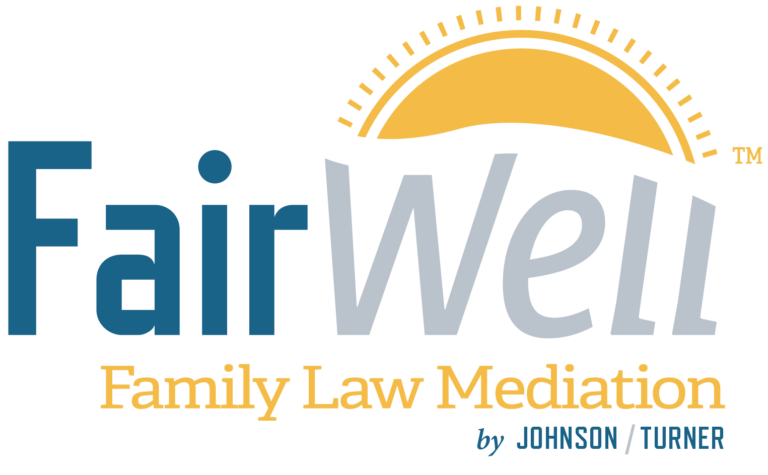Say FairWell to long, drawn-out litigation and costly disputes.
Mediation offers parties reasonable and sound solutions that can lead to better outcomes and far less conflict than traditional legal processes.
And unlike other mediations, FairWell also provides you with completed court documents at the conclusion of the mediation process.
Minnesota Divorce Mediation Lawyers
Mediation and Court Documents:
An All-in-One Solution
Unlike other mediators, we don’t just help you reach an agreement—we ensure it’s legally complete. Most mediators leave you to figure out the court documents on your own, often forcing you to hire an attorney and revisit unresolved issues. At FairWell, we draft your documents behind the scenes as you mediate, so everything is handled in real time. When we’re done, you’re truly done. No extra steps, no surprises—just a clear path forward, with filing included.
a Unique Alternative to Traditional Divorce
Our Process

Consultation
To begin, you, by yourself or together with your spouse, speak with one of our Consultants to determine the best option suitable for your family as to what matters most.

Pre-Mediation Preparation
You and your spouse will work with our team to gather needed information, identify and discuss areas of disagreement, and plan the mediation session.

Mediation
Next, you and your spouse will participate in mediation with a neutral FairWell Guide. Upon reaching an agreement, we help generate the necessary court documents, as well as electronically file them with the court for you.

Fresh Start
Finally, you and your spouse come out stronger with a fresh start knowing you made practical decisions through a process focused on fairness and serving you well.
Why Choose
Mediation over Litigation
Mediation isn’t just a quicker, less expensive option—it’s a way to move forward with respect and clarity. Unlike the adversarial nature of courtroom litigation, mediation helps you focus on what truly matters: resolving disputes peacefully and preserving relationships for the future.
Why Mediation May Be Right for You:
- Efficiency: Mediation is less formal and not bound by court schedules, allowing for a faster resolution.
- Privacy: Sessions occur in a private setting, providing a confidential space for open discussions.
- Empowerment: You maintain control over the decisions that will shape your family’s future.
- Family-Centered Solutions: Mediation is particularly beneficial in cases involving child custody, ensuring that the child’s best interests remain the priority.
Why Choose Johnson/Turner for your mediation
Minnesota Divorce Mediation Lawyers
- Quickly Start and Finalize Your Divorce
- You and Your Spouse Control the Process, Not Court or Attorneys
- Family Mediation Services Tailored to Your Case
- Calculation of Child Support
- You and Your Spouse Receive all Finalized Court Documents, Ready for Filing
- Your FairWell Guide Serves as a Referral Source if You and Your Spouse Need Additional Expertise, Such as a Financial Planner, Home Appraiser and/or Business Valuator
- Less Expensive, Flat Fee Pricing
- Child Custody and Parenting Time
- Division of Assets and Debt
- Spousal Maintenance/Alimony
- You and Your Spouse Work Together with a Neutral FairWell Guide to Identify/Resolve Disputes

WhAT TO EXPECT DURING THE
Mediation Process
Mediation is a structured yet flexible process designed to keep you in control of your future. Our mediators at Johnson/Turner will guide you and your spouse through each step, ensuring you both have the information and support you need to reach an agreement that works for your family.
The Stages of Mediation:
- Introductory Stage: You and your spouse will provide background details and set goals with the mediator.
- Information-Gathering: Important financial documents are reviewed to ensure both parties are fully informed.
- Framing Stage: Each spouse outlines their needs and interests to guide the negotiation.
- Negotiating Stage: The mediator helps you explore potential solutions and reach a mutually acceptable agreement.
- Concluding Stage: Once both parties agree, the mediator drafts a settlement to be reviewed and finalized.

a fair solution
Minnesota Mediation Services
 Divorce litigation can be costly—not only can couples incur expensive legal fees, but the relationship between them can suffer irreparable harm during the process. Our adversarial system of justice puts delicate family relationships at risk by pitting the parties against each other in court.
Divorce litigation can be costly—not only can couples incur expensive legal fees, but the relationship between them can suffer irreparable harm during the process. Our adversarial system of justice puts delicate family relationships at risk by pitting the parties against each other in court.If you are concerned about protecting or preserving important familial relationships, while advancing your legal interests, you should contact FairWell Family Law Mediation to consult an experienced mediator and guide in Minnesota, including the Twin Cities. We understand how valuable your family relationships are. That is why we are dedicated to delivering quality Alternative Dispute Resolution to assist families in finding equitable legal solutions to their disputes.
Divorce Mediation
A Path to Quick & Compassionate Resolution
Divorce Mediation
What does divorce mediation involve?
Generally, divorce mediation cases involve the following matters:
Division of Marital Assets & Liabilities
When a couple gets divorced, they must determine who is allocated the assets and liabilities they acquired during their marriage. Minnesota is not a community property state. Minnesota is an equitable distribution state when it comes to dividing marital property and debts upon divorce. This means that marital property and obligations are not necessarily equally divided 50/50 like they might be in a community property state. Instead, courts consider various factors in how to “equitably” apportion the property in question.
Spousal Maintenance/Alimony
In divorce cases, one spouse might not have sufficient financial resources to cover their living expenses after their marriage ends. Under Minnesota law, such a spouse may be entitled to financial assistance from their former spouse—known as “spousal maintenance,” “spousal support,” or “alimony.”
Child Custody + Support
Suppose a divorcing couple had a child together who has not reached adulthood by the time of their separation. In that case, they must determine their respective rights and responsibilities regarding the child’s physical care and upbringing. In all cases the parents have a duty to provide their child with financial support.
Key Benefits of Divorce Mediation:

- Faster Resolution: Mediation allows you to set your own pace, avoiding lengthy court delays.
- Cost-Effective: Mediation typically costs less than a traditional, contested divorce.
- Control & Flexibility: You decide the terms of your divorce, with the help of a neutral mediator.
- Preserve Relationships: Ideal for parents, mediation fosters cooperation and future co-parenting success.
Resolve Your Divorce Peacefully & Amicably – Call (320) 299-4249 to Speak With Our Minnesota Divorce Mediation Lawyer
Child Custody Mediation
Key Benefits of Child Custody Mediation:
Child Custody Mediation
How is child custody determinded in minnesota?
- The parents’ wishes
- The child’s preference, if the child is of sufficient age to have a mature opinion
- The child’s primary caretaker
- The child’s attachment with each parent
- The child’s relationship with each parent, siblings, and any other person who may be involved in the child’s daily life
- The child’s adjustment to home, school, and community
- The amount of time the child has lived in a stable environment
- The permanence, as a family unit, of the existing or proposed custodial home
- The child’s cultural background
- The mental and physical health of all individuals involved. However, disability can’t determine the outcome unless the arrangement isn’t in the child’s best interests
- Each parent’s ability to give the child love, affection, and guidance, and to continue educating the child about the family culture and religion/creed, if any
- The effect of domestic abuse on the child that has occurred between the parents or between a parent and another individual
- Each parent’s willingness to encourage and permit continued contact between the other parent and the child
What Can I Expect at Child Custody Mediation?
The most common topics discussed and resolved during child custody mediation are:

- Living arrangements or relocation
- Child support
- Health issues
- Education and religion
- Parenting time
- Overseas travel
- The division of payment for additional expenses, such as extracurricular activities
Both parents may be asked to prepare a short statement to bring to the initial session, outlining what they hope to achieve from mediation.
how to get full custody in minnesota
In order to get custody of your child in Minnesota, you must first meet the residency requirements, outlined by the Minnesota Courts as follows:
“The child must have lived in Minnesota with a parent or a person acting as a parent for at least six (6) consecutive months (180 days) before starting the court process.”
In order to get full custody of your child in Minnesota – meaning you have sole custody – you will need to present a strong case to the judge proving that it is in your child’s best interest for you to have full custody and that it would be detrimental to the child for the other parent to have custody. This is why it’s so important to have an excellent child custody mediation attorney on your side.
Your Children Deserve The Best Possible Outcome. Call (320) 299-4249 Today to Speak With Our Minnesota Child Custody Mediation Lawyer
Child Support Mediation
Key Benefits of Child Support Mediation:
Child Support Mediation
Minnesota Law on Child Support

- Each parent’s financial resources
- The extraordinary financial, physical, and emotional needs of the child
- The standard of living by which the child would have lived had the parents stayed together
- The income tax dependency exemption and which parent will benefit from it
- Outstanding financial obligations of the parents
- Whether a parent’s child support payments exceed statutory limitations under Section 571.922
Looking to negotiate your child support agreement? Call (320) 299-4249 to contact our Minnesota child support mediation lawyer.
Spousal Maintenance/Alimony Mediation
Key Benefits of Alimony Mediation:
Spousal Maintenance Mediation
Minnesota Spousal Maintenance
What Determines if a spouse gets alimony?
Courts consider the following factors when determining issues of alimony:
- The financial resources of the spouse seeking support
- The time required for the spouse to obtain employment
- The marital standard of living
- The length of the marriage
- The lost employment opportunities of the spouse seeking support
- The age and physical and emotional condition of the spouse requesting support
- The ability of the spouse from whom support is sought to meet their needs as well as the other spouse’s
- The parties’ contributions to the value of marital property

How Long Do You Have To Be Married To Get Alimony in MN?
How Long Does Alimony Last in Minnesota?
The duration of alimony in MN depends on the type of order:
- Temporary order – Only lasts as long as the divorce proceedings.
- Short-term order – Lasts for a short time after the divorce is finalized, such as in situations where the receiving spouse needs to be supported while he or she finishes school or vocational/job training.
- Permanent order – Typically awarded if the marriage has lasted at least 10 years and one party is unable to support him or herself.
Is Your Alimony Order Unfair? We Help Spouses Compromise Fair Deals. Call (320) 299-4249 Today to Speak With Our Minnesota Alimony Mediation Lawyer
Helping Families Find Fair Solutions Through
Alternative Dispute Resolution (ADR)
Alternative Dispute Resolution (ADR) is a way to settle disputes without litigation, such as through mediation. ADR is guided by a neutral third party who helps resolve areas of conflict. The most common forms of ADR in Minnesota are mediation, arbitration, and case evaluation. Fairwell Family Law Mediation focuses on meditation.
What Are the Advantages of ADR?
Alternative Dispute Resolution can:

- Save you time and money
- Be less stressful
- Is confidential and private
- Give you more control over the outcome of your case
- Preserve or improve relationships, which is especially important in family law matters
PREPARING FOR SUCCESS
How to Prepare for Mediation
 Mediation is a low-conflict method of negotiation arbitrated by an impartial third party with the intent of circumventing differences that could prevent a consensus. While there are other definitions of mediation, in the simplest terms, it generally means neutrally assisted negotiation. The provided definition of mediation gives participants some idea of what to expect, but it can still be challenging to know if and how to prepare for your negotiations. Depending on the matter being negotiated, it can be challenging to give general advice for how to prepare for a mediation, but here is some guidance to increase the likelihood you won’t be caught unprepared when the time comes.
Mediation is a low-conflict method of negotiation arbitrated by an impartial third party with the intent of circumventing differences that could prevent a consensus. While there are other definitions of mediation, in the simplest terms, it generally means neutrally assisted negotiation. The provided definition of mediation gives participants some idea of what to expect, but it can still be challenging to know if and how to prepare for your negotiations. Depending on the matter being negotiated, it can be challenging to give general advice for how to prepare for a mediation, but here is some guidance to increase the likelihood you won’t be caught unprepared when the time comes.
- Remain Flexible: You can try to prepare for every eventuality, but it’s important to realize that new topics and issues may arise that must be handled. You can’t be too rigid.
- Practice Active Listening: Productive two-way communication requires active listening. To participate in the process, you need to listen to what the other side is saying and be prepared to respond accordingly.
- Communicate Clearly: If you have points you hope to make and things you need to discuss, it’s helpful to write them down and plan your talking points. Communicating clearly begins with preparation, so think through what you want to share and plan.
- Avoid Emotional Language and Triggers: If you are negotiating a sensitive topic, it’s best to avoid emotional language and known triggers that will derail the process. It can lead to unnecessary delays.
- Prepare for the Process: Before you mediation, you will know the agenda for the negotiation. You aren’t going to be surprised by the negotiation topics. So, take advantage of this knowledge and prepare. Bring any necessary paperwork and materials you’ll need.
- Use Your Resources: If you’re getting a divorce or negotiating support payments, you have the option to seek out professionals to help you prepare for your mediation. Experts like tax professionals, financial advisors, child specialists, and divorce mediation attorneys can help answer your questions as you prepare for your mediation.
Mediation offers parties reasonable and sound solutions that can lead to a far less conflictual experience. Because each side is working together to find answers and formulate plans on their terms often leads to better outcomes. Contact our Minnesota divorce mediation lawyer today and put your best foot forward.
Client Reviews
Why We Do What We Do
At Johnson/Turner, we do what we do because we believe in the power of making a positive impact on people’s lives. We know that legal challenges often come at the most difficult moments, and our mission is to guide you through those transitions with care, understanding, and expert support. Seeing our clients regain stability, protect their families, and build a better future is the reason we’re here.




Ready to Get Started?
Fill out this contact form and we will get in touch with you.




























